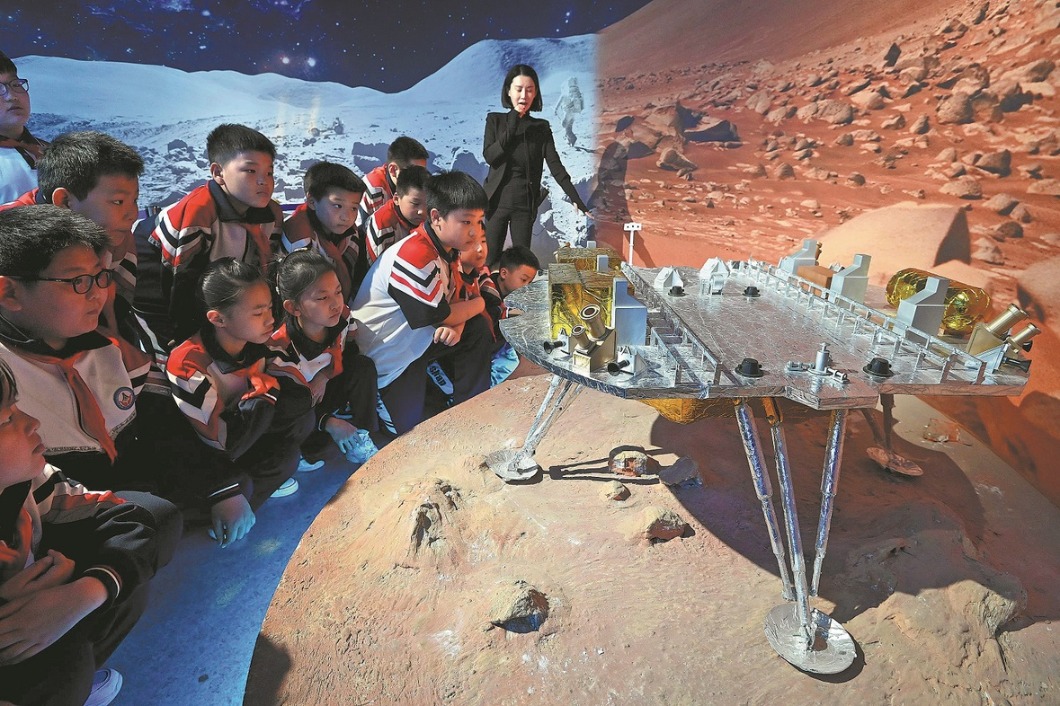Foreign trade remains robust despite protectionism, geopolitical uncertainties

The strengths of China's manufacturing, coupled with the country's focus on technological advancement and trade diversification, have allowed its massive foreign trade enterprises to better navigate the turbulent waters of trade protectionism and geopolitical uncertainties, officials and analysts said.
The United States imposed "reciprocal" tariffs on dozens of its trading partners earlier this month, with an especially steep tariff hike against China.
"This development will inevitably create some negative effects on our exports in the short run," said Zhou Mi, a researcher at the Beijing-based Chinese Academy of International Trade and Economic Cooperation.
"However, China's foreign trade firms have already weathered an 8-year trade war with the US, amassing a wealth of experience and the fortitude to withstand the shock waves of US tariff bullying," Zhou said.
Foreign trade data for the first quarter showed that despite the increase in external restrictions, exports during the period rose 6.9 percent year-on-year to 6.13 trillion yuan ($840 billion), according to the General Administration of Customs.
In particular, China's foreign trade with the US expanded 4 percent year-on-year to 1.11 trillion yuan during the first three months, despite disruptions from the US administration's reckless tariff policies, according to the administration.
China's manufacturing industry has grown to account for 35 percent of the global market share, said Tu Xinquan, dean of the China Institute for World Trade Organization Studies at the University of International Business and Economics.
"The current focus in stabilizing foreign trade is on addressing the external challenges, particularly the need to diversify markets and enhance global production networks to mitigate the country's reliance on the US market," Tu said.
Shanghai Yili Electric Co, a manufacturer of cleaning equipment, saw an increase in orders throughout the first quarter, driven by the gradual recovery in the European and Russian markets, as well as robust demand in South America.
"Over the past two years, we have been pursuing opportunities in the European and Russian markets. These two major markets have seen relatively high growth rates, which can help to fill the gap left by the decline in the North American market," said Cai Tongguo, product manager of the company.
China has become a major trading partner of more than 150 countries and regions, and the country's circle of friends in foreign trade is getting larger.
The nation's export landscape has also evolved beyond the confines of traditional trade products. A rising number of technologically advanced and innovative products are gaining traction in the global marketplace.
Guangdong Lingdu Intelligent Technology Development Co, during the ongoing Canton Fair in Guangzhou, Guangdong province, introduced a high-rise window cleaning robot, designed to tackle the challenging task of cleaning the exteriors of tall buildings, while significantly improving safety and efficiency.
"Our core technology is the built-in water tank, which requires only 9 liters of water to power the continuous filtration and recycling function. This means we don't need to connect to a water source," said Chen Sihong, the company's sales director.
"With this functionality, we can achieve limitless cleaning heights, including for skyscrapers up to 500 meters tall," Chen said. "Moreover, the cleaning efficiency of our product is three to five times faster than manual labor, making it highly sought after in overseas markets."
The company's products have already been exported to more than 20 countries, with overseas markets accounting for 80 percent of its sales, according to Chen.
Zhang Yansheng, a researcher at the Chinese Academy of Macroeconomic Research, said despite the challenges posed by external pressures, China has managed to achieve sustained technological progress and industrial upgrading, which have significantly underpinned the country's foreign trade performance.
Zhang emphasized the need for China to engage more with the European Union, Japan, South Korea and the Association of Southeast Asian Nations, among others, to uphold the multilateral trading system and global cooperation.
?
- Foreign trade remains robust despite protectionism, geopolitical uncertainties
- Domestic retailers give exporters boost
- Ten photos from across China: April 18 - 24
- Shenzhou XX astronauts enter space station
- Shenzhou XX completes space station docking
- Beijing courts increase use of punitive damages in IP cases




































